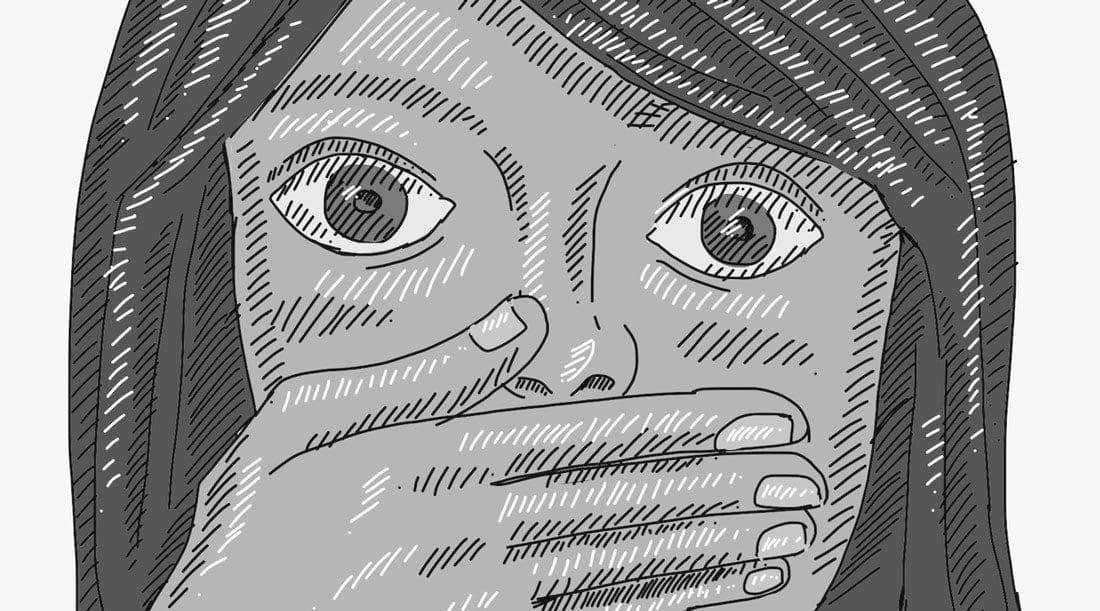The Western Renaissance of Marxist Ideas
Feminist philosopher and gender theorist Judith Butler found it fitting to commemorate the Hungarian Revolution of 1956 by calling all who oppose gender ideology fascists. She portrayed Hungary as a totalitarian, misogynistic, homophobic, and transphobic regime.
The timing seems deliberate: the piece was published on 23 October on the left-leaning The Guardian‘s website. On the day when not just Hungarians, but the whole world paid honour to the courage and sacrifice of those standing up to the strongest dictatorship of the time, Judith Butler issued a call to arms in the name of the LGBTQ+ movement against all who see the world from a different perspective than her progressive, feminist view.
It is somewhat ironic that a movement, which in the name of love and acceptance, supposedly fights for the oppressed, is getting more and more aggressive in its attacks against those it deems not radical enough. Christians, Muslims, Orthodox Jews, conservatives are all in the crosshairs, all equally dismissed as fascists.
Butler—ironically indeed—is outraged over ‘authoritarians’ likening genderism to communism and totalitarianism. There are excellent studies about the close link between Marxism and feminism and gender constructivism. The world’s leading gender theorists do not even try to conceal their admiration for critical theory, which resurrected dialectical materialism in the West in the mid-20th century. These theories have always aimed at dismantling patriarchy and monogamy while creating a sexual culture free of all boundaries. They consider the nuclear family to be a structure of oppression—something that, in its traditional sense, needs to be done away with to achieve social equality.
‘The first condition for the liberation of the wife is to bring the whole female sex back into public industry, and that this, in turn, demands the abolition of the monogamous family as the economic unit of society,’—writes Friedrich Engels in ‘Origin of the Family, Private Property, and the State‘.
Witnessing from Hungary what has been going on in the “happier” and more developed West in the past decades, we see that the parallel between genderism and communism has become more pronounced.
Judith Butler chooses the anniversary of the 1956 Revolution against Soviet oppression to question why the movement she champions is increasingly compared to communism. The same system that had created immeasurable pain and suffering whenever or wherever it was put into practice. I will attempt to answer Butler’s theoretical question through stories we all share from a dark era.
Newspeak
Communism elevated the art of distorting reality through words to its highest levels
Landowners were called kulaks, class-aliens, enemies of the people, oppressors, and their lands were confiscated. Many of us have grandparents or great-grandparents who lost everything. When people were deported to forced labour camps, they were told they would only have to do malenki robot, a little work—which then lasted for years or until the untimely death of those deported who were kept under inhumane conditions. The 1956 revolution, in which so many had sacrificed their lives or existence, was labelled a counter-revolution. ‘What we don’t talk about, that doesn’t exist’: that’s how Hungary eliminated poverty, unemployment, or suicides. Little did it count that reality was completely different. ’Humans are the most valuable’—went the communist slogan. My grandfather murmured it bitterly every time he heard about someone being imprisoned.
Culture is a powerful weapon: a weapon capable of conquering without shedding blood. When I hear that one cannot use words like ‘mother’, ‘father’, ‘woman’, ‘breastfeed’, ‘womb’ or ‘vagina’ without being punished or cancelled, or when I hear that ‘sex change surgery’ is called ‘gender confirmation surgery’, and sexual norms are completely eradicated in the name of ‘sex positivity’, I can’t help but think of my grandparents’ stories.
Questioning Reality
The majority, the silent majority—my parents and grandparents included—saw, experienced, and sensed an inevitable reality, whereas, in the news, they read and heard a different one, that of the party. It was not hard to notice that they were being lied to. Reality is a stubborn thing. A starving man will not be easily convinced that he is well-fed. It is one thing to say that people worked for no pay, of their own free will and without coercion during ‘communist Saturdays’, but it is another to know that they had no choice. I guess my grandmother did not feel liberated from male oppression when she—a 99-lb young woman—had to carry heavy stones and shovel concrete in a factory or when she had to return to work after a three-week maternity leave. She had to slip out during breaks to breastfeed her child. What empowerment for women!
You see a man, in a man’s body, with male genitalia, who identifies as a woman. More precisely, as a six-year-old girl. You are about to say, no, you are not a six-year-old girl, but a middle-aged man who left his family (his seven children) to “start a new life”. You are about to speak your mind, but if you live in Canada, you had better think twice about what you write on Twitter. Bizarre statements like ‘trans women are exactly the same as ciswomen’, or ‘men can give birth’ are vehemently defended by radical proponents of genderism, even when, in doing so, they end up turning against former comrades. Accepting sexual identity based simply on self-identification constantly challenges our relationship with reality.
Self-censorship and Freedom of Thought
My parents’ generation got used to this double reality. Those who were not dedicated communists knew that much of what they were taught at school was lies. They knew what they could say in public, who they could be honest with and when to censor themselves. They led a double life. They could never feel safe because there were informants everywhere.
Communists wanted your thoughts, too. It was not enough that you went to the factory every day and did your job. No. The atheist state expected you to declare your faith in it, and it prosecuted everyone suspected of thinking differently. You had to comply with the system, or at least pretend to comply with it. In the 1950s a (notorious) black car could pull up to your home any time. (Many still remember the sheer horror of the doorbell ringing in the middle of the night.) Anybody could be taken at any time to get tortured, sentenced without due process, or be executed. All this was, of course, for the sake of a better future, total equality, and less suffering.
Self-censorship: does it sound familiar to those in the West, who try to express their opinion about certain sensitive issues? In countries where gender ideologies have been imposed in school curricula, an increasing number of parents are pulling their kids out of school. Or, if they cannot home-school them, they are doing the same my grandparents did: trying to prepare them to protect themselves against thoughts radically different from what they believe in and what they have learned to be true. No, these parents are not opposed to their children being taught to accept diversity per se. What they cannot accept is the redefinition of concepts like ‘woman’, ‘man’, ‘family’ and ‘sexual morality’. They are concerned by the lack of honest dialogue and the questionable scientific foundation of assessments presented to be evident.
Today, people can get into prison for ‘mortal sins’, like using the wrong pronoun for someone. Today, people can lose their jobs, suffer humiliation, or get persecuted for their opinion. Not here, in fascist Hungary, but in “free” Western countries.
The New Soviet Man and persecuted Christianity
Everything about the past was dangerous, and therefore a subject of persecution. Christians, for example. Communists sent priests to the Gulag or Hungarian working camps. Many were sentenced in show trials (like Cardinal Mindszenty) or even executed. People could only privately practice their faith even at the end of the Kadar regime. Why did they think religion was so dangerous? Because Christians have a concept of man that is different from that of the New Soviet man. Because Christian faith is based on the Holy Scripture and the tradition passed on from generation to generation through hundreds of years. It cannot be traded for Marxist or any other ideology. The core of Christianity is personal faith rooted in revelation, not in self-identification. Religion loses its real essence when it starts aligning itself with the current trends. The communists understood that this Christian concept of man and the world was so strong that it had survived numerous empires without losing its central message. That is why they wanted to eliminate it. But they could not.
Communists wanted to create a New Man. With it, new ethics and new norms
Biblical Christianity and any religion staying true to its roots constitute obstacles to gender mainstreaming. They do not support genderism, and this makes them enemies or, as Judith Butler calls them: fascists. And there is no exception to this rule. As Judith Butler implies, even the Pope is a fascist.
You Can Never Be Progressive Enough
In Communism, you could never be progressive enough. The same person who was celebrated as a hero one day could find himself in jail the next – if he was lucky. You were not allowed to criticize the ideology or question Communism. I do not know how Margaret Atwood or J.K. Rowling feels now, in 2021, after being called enemies and labelled TERF (trans-exclusionary radical feminist). The LGBTQ movement is eating its own as it is getting closer to its goals.
‘You must think what we think’ is the mantra du jour. If you disagree, you are called transphobic. Blaire White, an American transgender YouTuber, suffered a similar backlash after claiming that gender was binary. Arielle Scarcella, a lesbian influencer, once dubbed by The New York Times ‘sex-ed queen of YouTube’, fell from grace because she openly declared that she does not want to date transwomen with male genitalia, since as a lesbian, she does not feel attracted to them.
Beyond a Joke
What is wrong with the radical constructivism of genderism? It is a system that no one can criticize unpunished, even though it is inconsistent and antagonistic to scientific rigor. Yet, it has grown from philosophical workshops into a force of social change, influencing education, research, and legislation. The claim that gender identity is not biologically determined is an interesting and original assumption but is not scientifically proven. We do not know precisely to what extent biological factors and the environment play a part in the formation of gender identity and how these two interact. The hypotheses and data we have so far support some claims of gender studies, while they contradict others. These issues should not be treated as unquestionable truths. They should instead be subject to an open, bias-free discussion conducted from different angles and approaches to arrive at the most accurate description of reality.
Talking about similarities between socialist and gender revolutions, let me indicate one crucial difference: people could find ways to laugh at the system even in the communist era. Jokes were not completely censored and suppressed. Can you make any joke about gender issues without being called a bigot or even a fascist? We all know the answer.
The original article was published in Hungarian in Hetek








